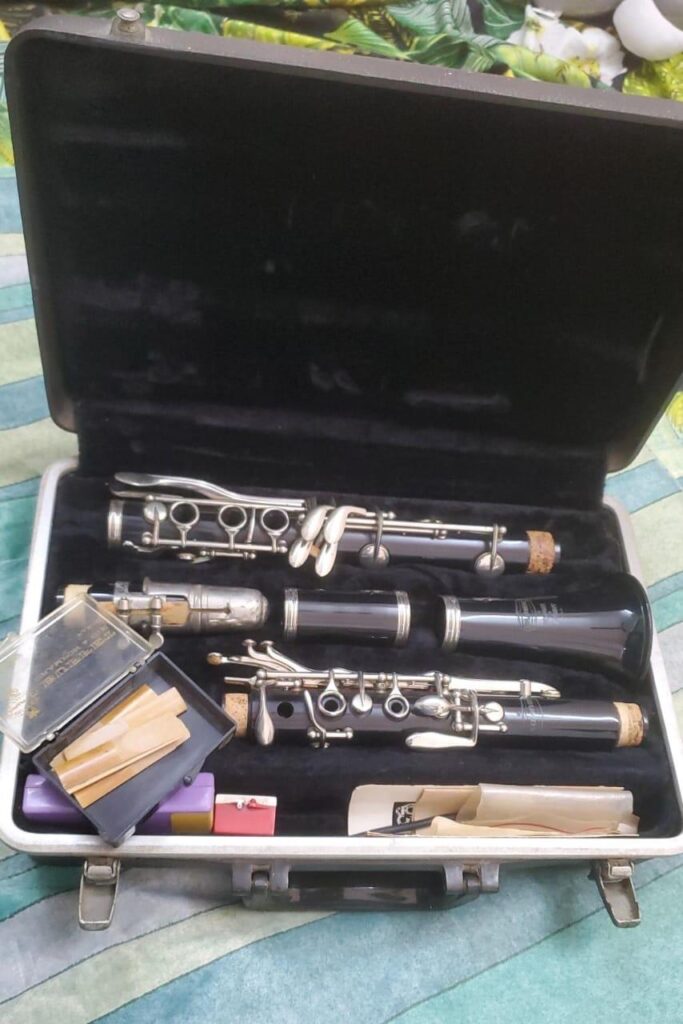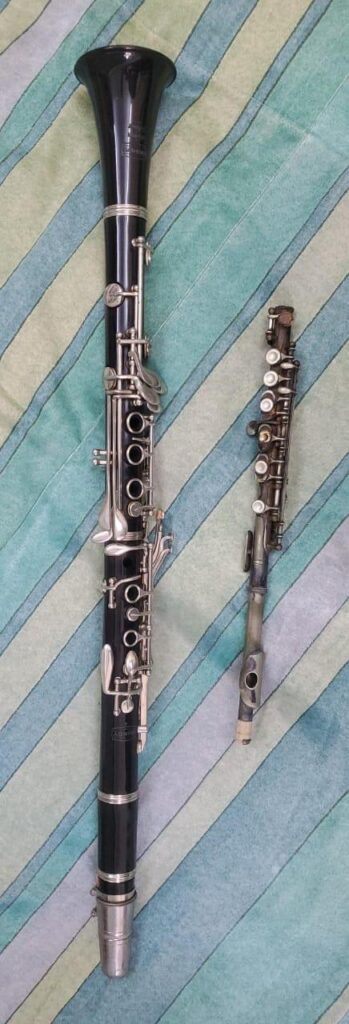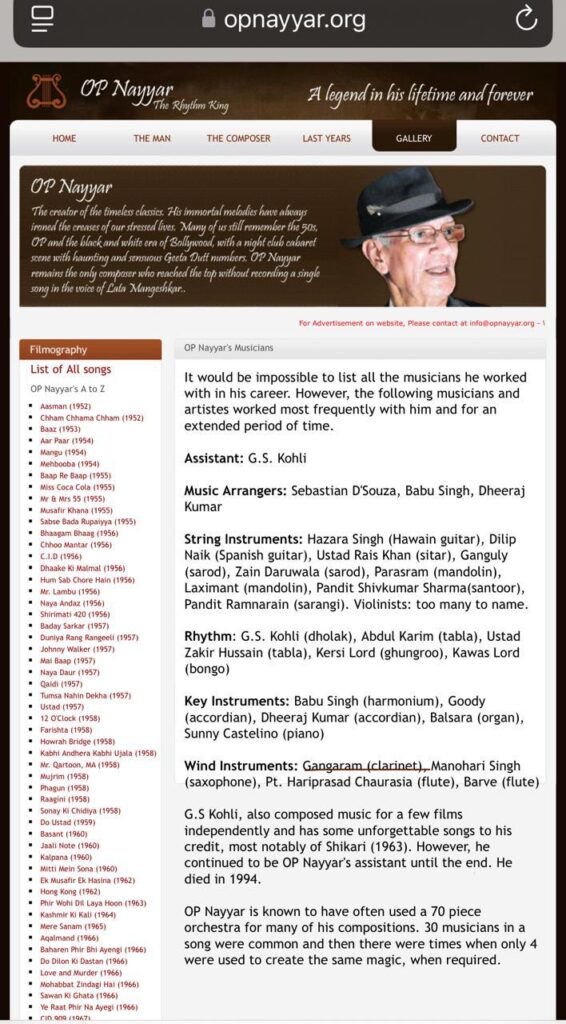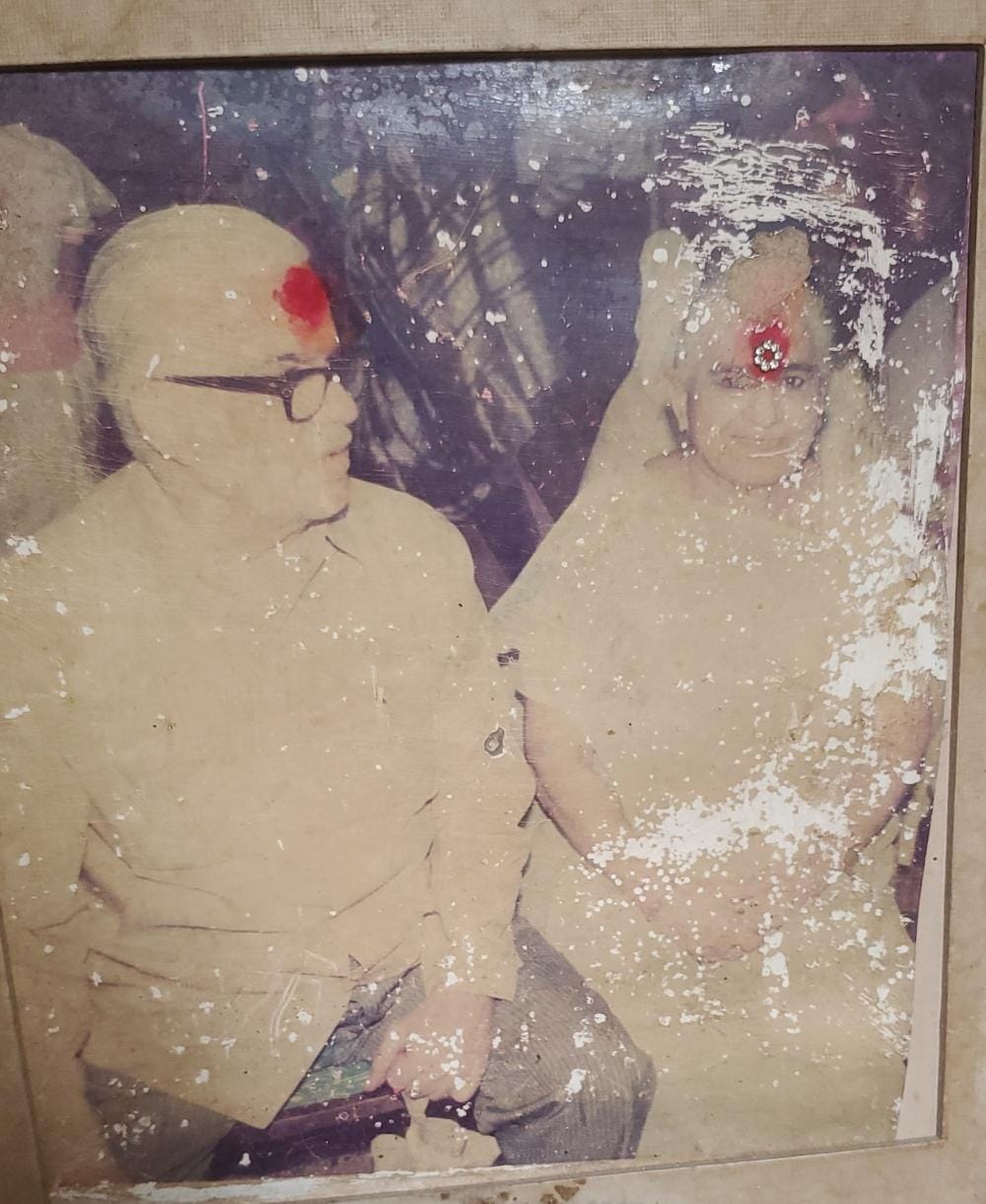The Journey of Shri Gangaram Samandas Dalwani: From Karachi to Bollywood’s Music Studios
Shri Gangaram Samandas Dalwani, fondly known as Gaggi, was my cousin’s grandfather. We children lovingly called him “Murli Wara Bhabha”—the grandfather with the flute. However, this childhood perception of him playing only the flute for the famous Hindi film music composer duo, Laxmikant-Pyarelal, was far from the complete picture.
Bhabha was not just a flutist; he was a versatile musician who went on to play the clarinet, saxophone, and piccolo later in his career. He worked with some of the biggest names in the Indian film industry, including Boolo C. Rani, O.P. Nayyar and Kalyanji Anandji, apart from Laxmikant-Pyarelal. He even played under the international music maestro, Zubin Mehta. His journey—from running a family provision store in Karachi to playing alongside legends like Pt. Hariprasad Chaurasia and Pt. Zakir Hussain—is a testament to his resilience, adaptability, and passion for music.
Surviving Partition: A Family’s Struggle
The Partition of India in 1947 was a time of immense violence, loss, and upheaval. Chaos ruled on both sides of the newly drawn border, with daily reports of killings, riots, and looting. Bhabha’s family, who owned a provision store in Karachi, realized that their home was no longer safe. To secure a livelihood, they decided to send Bhabha ahead to Mumbai (then Bombay) to explore work opportunities.
His parents and his wife, Ishwari, followed later with their two young children, one of whom was two-year-old Prem. Their journey by ship was harrowing—so overcrowded that there was barely space to stand. Amidst this chaos, a horrifying incident occurred.
A fellow passenger snatched little Prem from Ishwari’s lap, claiming the child was his. Ishwari’s screams alerted other passengers, and the man was confronted. A wise bystander suggested placing the child between Ishwari and the man to see whom he would run to. Without hesitation, little Prem ran into his mother’s arms, resolving the dispute. This shocking event revealed yet another tragedy of Partition migration—child kidnapping.
Upon arrival, the family found temporary shelter in a refugee camp in Okha, waiting for better days.
A Chance Encounter: From Unemployment to Bollywood
Meanwhile, Bhabha reached Mumbai, searching for a job and a place to stay. Fate led him to Thane, where a kind-hearted Maharashtrian fellow RSS member offered him a small room above his house. Each day, Bhabha roamed the city in search of work, returning empty-handed.

In Pic: CLARINET
One day, in casual conversation, he mentioned his experience of playing the clarinet in a community band back in Karachi. Someone suggested he meet the renowned music director, a Sindhi, Boolo C. Rani, at a studio in Dadar.
That meeting changed his life. Boolo C. Rani, impressed by his skills, hired him on the spot for a princely salary of ₹150 per month—a significant sum in those days.
Bhabha dedicated himself to constant practice, refining his technique and mastering the clarinet. His perseverance paid off when he landed a position as the lead clarinetist for O.P. Nayyar. His contribution to ‘Naya Daur’ (1957) remains iconic, as his clarinet melodies became an integral part of the film’s music.
Rising to Prominence in Bollywood
With his growing reputation, Bhabha’s career flourished. His family soon joined him in Mumbai, and he secured two rented homes—one for his parents and another for his wife and children.
As Bollywood music evolved in the 1970s, composers began incorporating Western scales and orchestration into their compositions. Many musicians, reluctant to adapt, saw their careers decline. But Bhabha, always eager to learn and evolve, decided to teach himself Western music notation.
This decision proved crucial. Not only did it secure his place in the changing music industry, but it also opened doors to freelancing opportunities. He was no longer bound to one composer—his services were now in high demand. He now worked with the best music composers of the film industry.
His financial situation improved remarkably. Bhabha purchased his first flat in Vivekanand Society Co-operative Society in Mahim, followed by two more in the posh Juhu Scheme area of Mumbai.
A Global Musical Journey

IN PIC: CLARINET AND PICCOLO
Bhabha’s talents weren’t confined to Indian cinema. He was invited to join music tours with Laxmikant-Pyarelal and Lata Mangeshkar, performing in the United States and London. These international tours allowed him to explore new instruments and further expand his musical repertoire.
He brought back with him a saxophone, a flute, and a piccolo, mastering them over time. His ability to adapt, innovate, and embrace new challenges kept him relevant in an industry where change was constant.

In Pic: Bhabha as the main clarinet player for O P Nayyar
A Legacy of Resilience and Excellence
Shri Gangaram Samandas Dalwani’s life was more than just a story of musical success—it was a testament to the spirit of resilience that defined the Sindhi community post-Partition. He faced displacement, financial struggles, and professional uncertainty, yet he transformed every challenge into an opportunity.
His journey from a Karachi shopkeeper’s son to a Bollywood musician reflects the indomitable “can-do” spirit of Sindhis who, despite losing everything, rebuilt their lives with sheer determination and hard work.
Bhabha’s story is an inspiration—not just for musicians, but for anyone striving to reinvent themselves in the face of adversity.
Narrated by Shri Prem G. Dalwani
Written by Jyoti Mulchandani


Indeed very inspiring story…. beautifully portrayed 👌